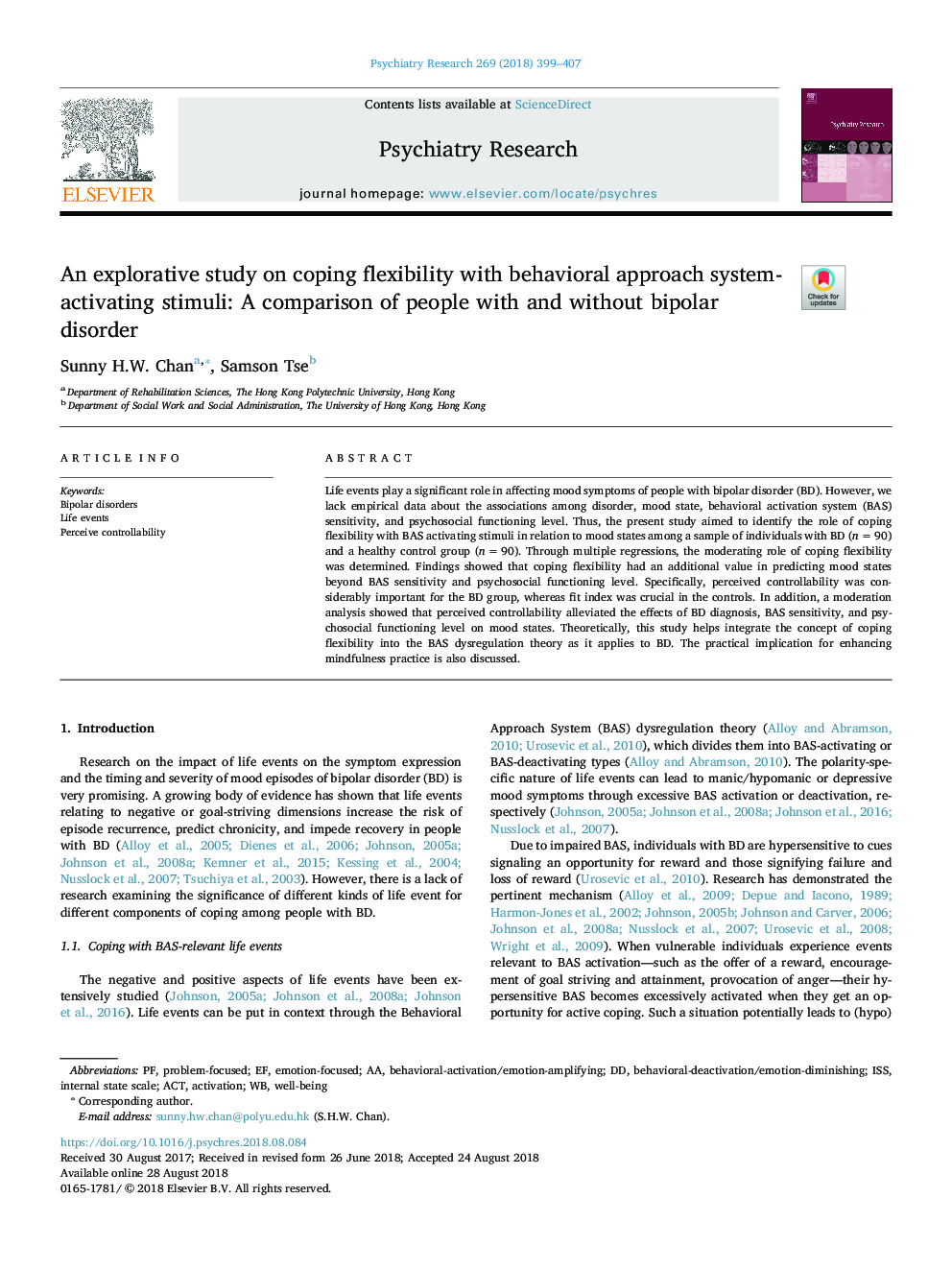| Article ID | Journal | Published Year | Pages | File Type |
|---|---|---|---|---|
| 10132330 | Psychiatry Research | 2018 | 9 Pages |
Abstract
Life events play a significant role in affecting mood symptoms of people with bipolar disorder (BD). However, we lack empirical data about the associations among disorder, mood state, behavioral activation system (BAS) sensitivity, and psychosocial functioning level. Thus, the present study aimed to identify the role of coping flexibility with BAS activating stimuli in relation to mood states among a sample of individuals with BD (nâ¯=â¯90) and a healthy control group (nâ¯=â¯90). Through multiple regressions, the moderating role of coping flexibility was determined. Findings showed that coping flexibility had an additional value in predicting mood states beyond BAS sensitivity and psychosocial functioning level. Specifically, perceived controllability was considerably important for the BD group, whereas fit index was crucial in the controls. In addition, a moderation analysis showed that perceived controllability alleviated the effects of BD diagnosis, BAS sensitivity, and psychosocial functioning level on mood states. Theoretically, this study helps integrate the concept of coping flexibility into the BAS dysregulation theory as it applies to BD. The practical implication for enhancing mindfulness practice is also discussed.
Related Topics
Life Sciences
Neuroscience
Biological Psychiatry
Authors
Sunny H.W. Chan, Samson Tse,
